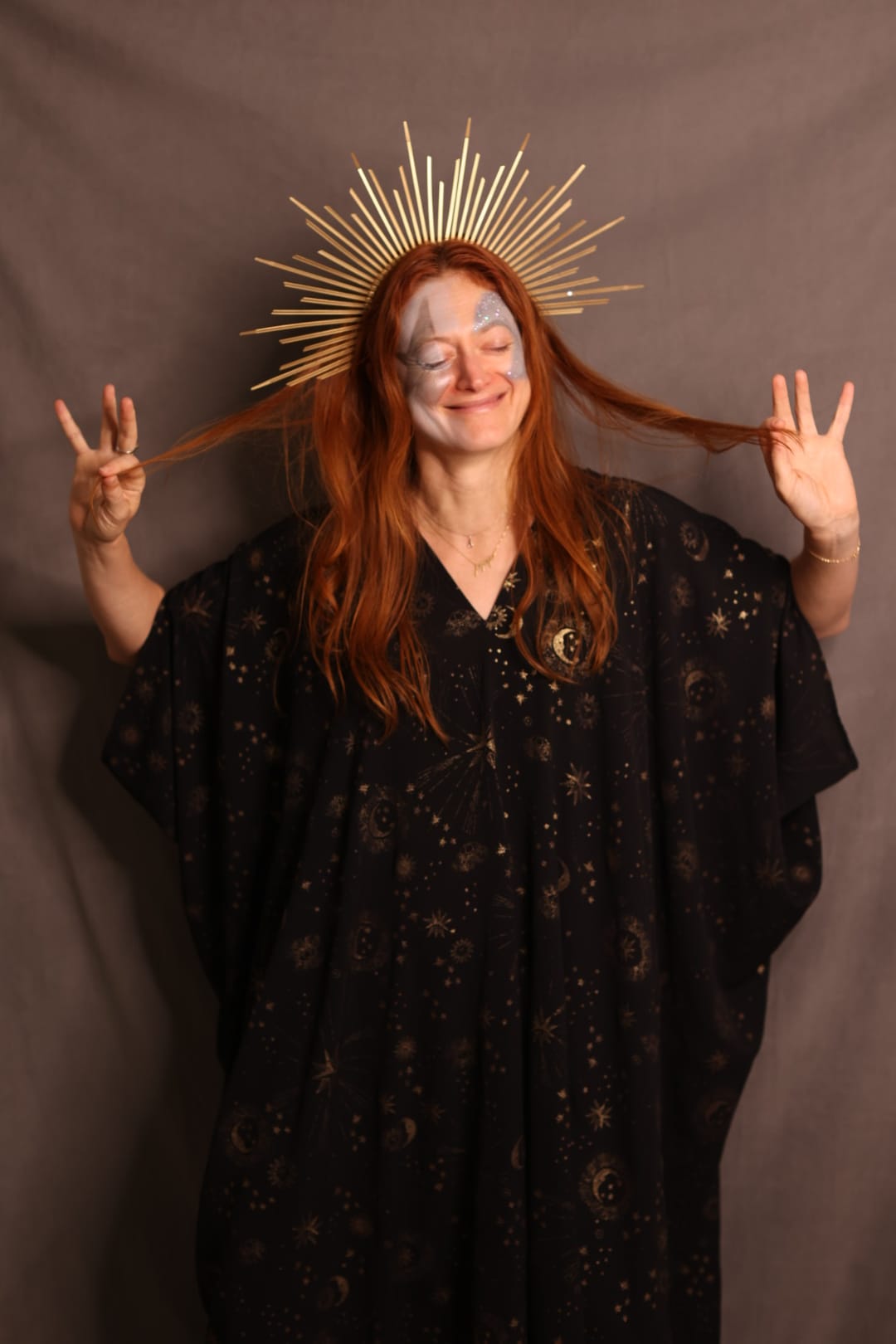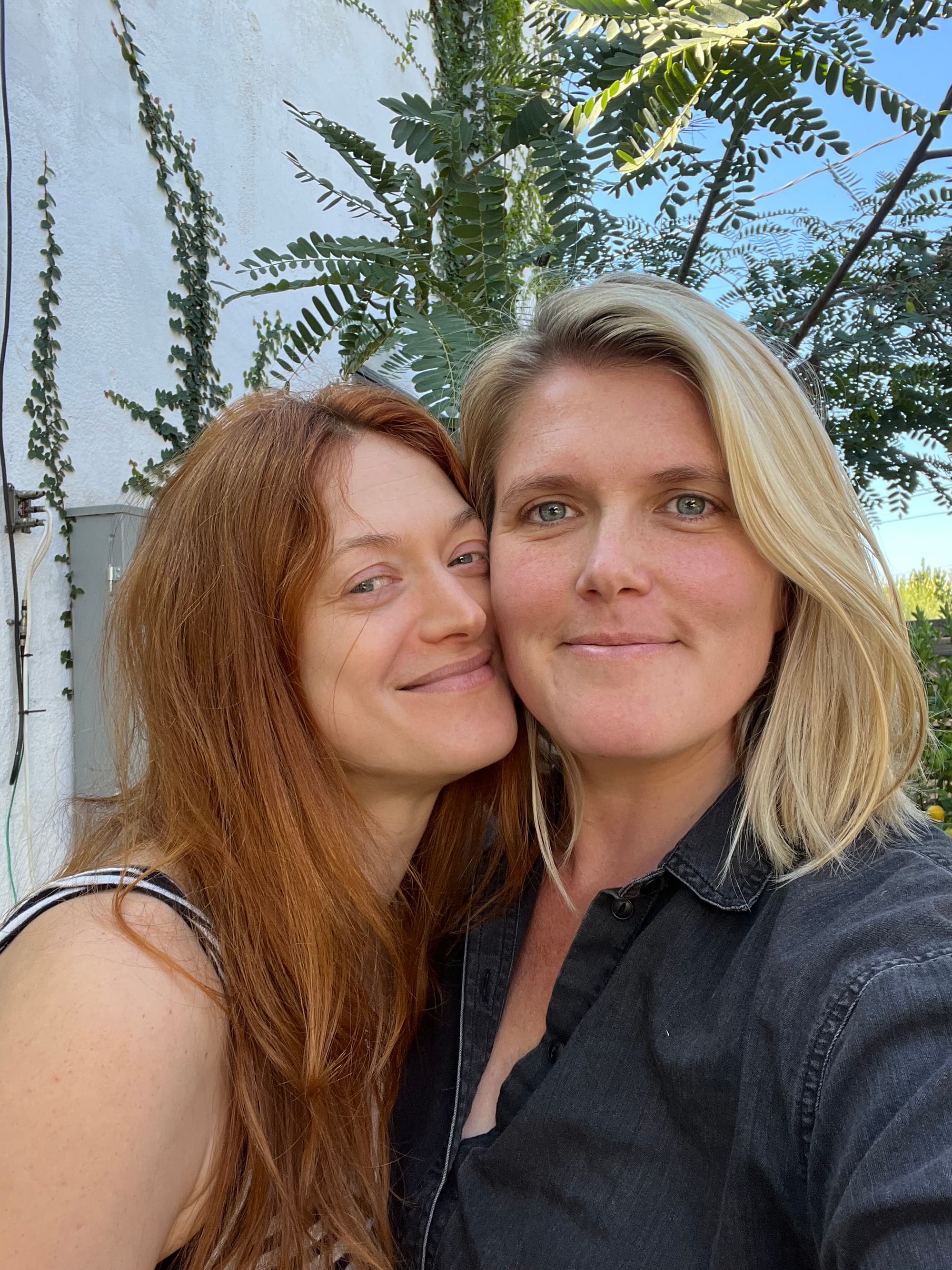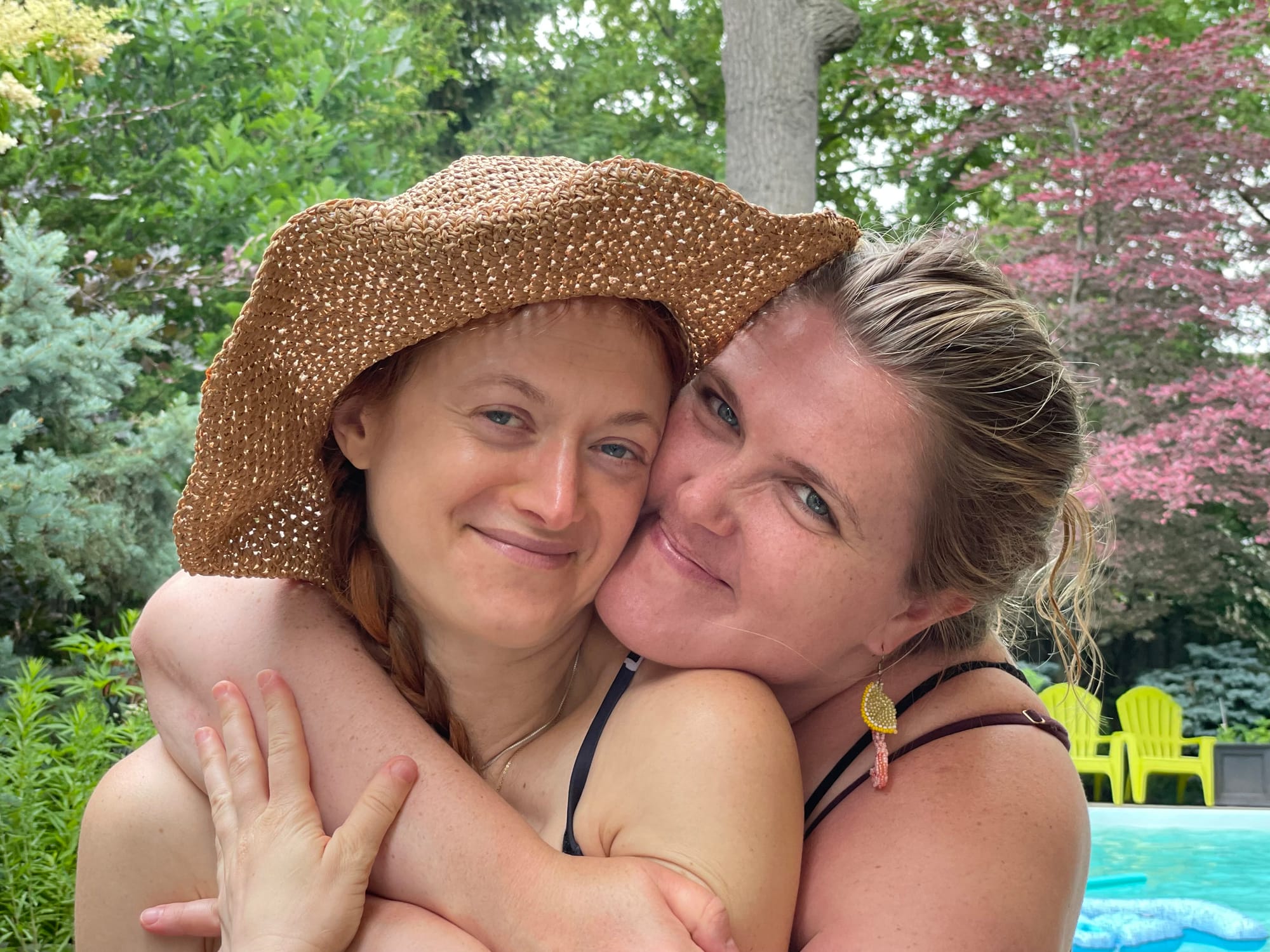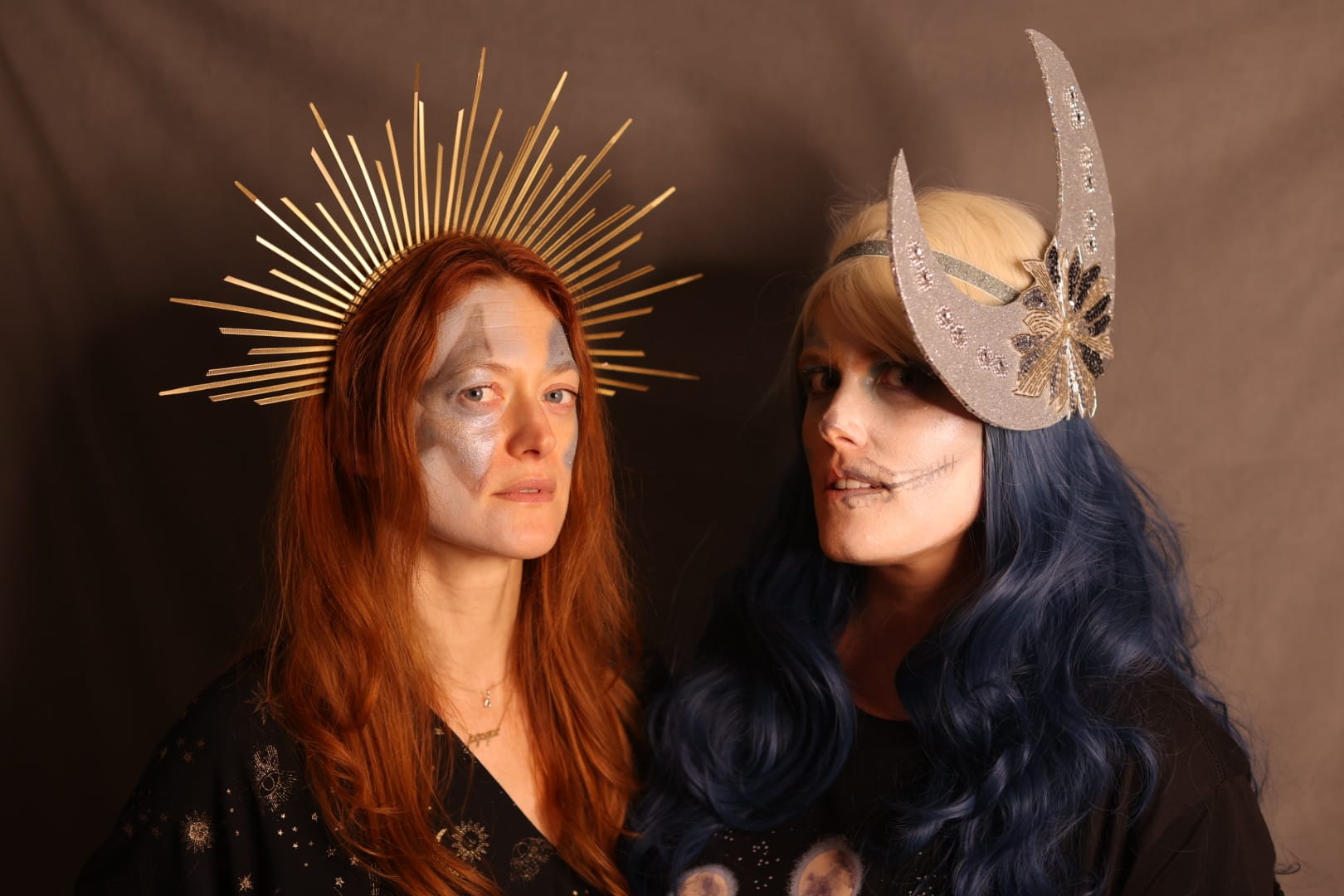Wands Spotlight: Marin Ireland
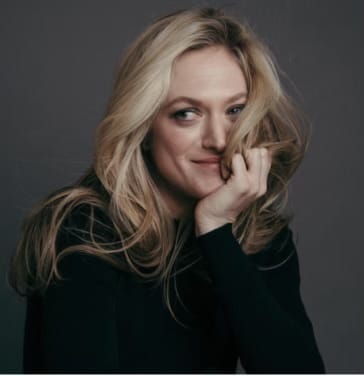
Friends, Happy (!?) Most Anxious Day of Every Four Years to all who observe!
Today was supposed to be the Eight of Wands, but guys, I'm not in any state to write an essay about "things falling into place." I very much hope that things will fall into place as they should. I have already cast my vote for Kamala Harris, and it is my sincere hope that we will collectively turn the page on Donald Trump tomorrow. In the meantime, I'd like to spend some time with my dear and brilliant friend, Marin Ireland.

The first time I saw Marin Ireland perform, it was in 2008's Soho Rep production of Blasted by Sarah Kane, one of the most brilliant and harrowing pieces of theater I've ever experienced. It shook me to my core. Marin's performance was devastating, terrifying, and visceral. She is one of the best actors alive today, and you can quote me on that.
"Marin Ireland is one of the best actors alive today."
- Eliza Clark
Over the summer, I got to see a production of a play Marin wrote that was produced in New York. The play is called Pre-existing Condition, and it tackles violence in a romantic relationship and its aftermath with vulnerability, humor, and unblinking fearlessness. Marin is the real fucking deal, you guys, okay?
Marin is also a dear close friend of my six year old son, Toby, who would force her to play hours of Hulk vs Thor during Toronto's Covid lockdown. Toby didn't realize he was acting opposite one of the greats, though I frequently told him as much.
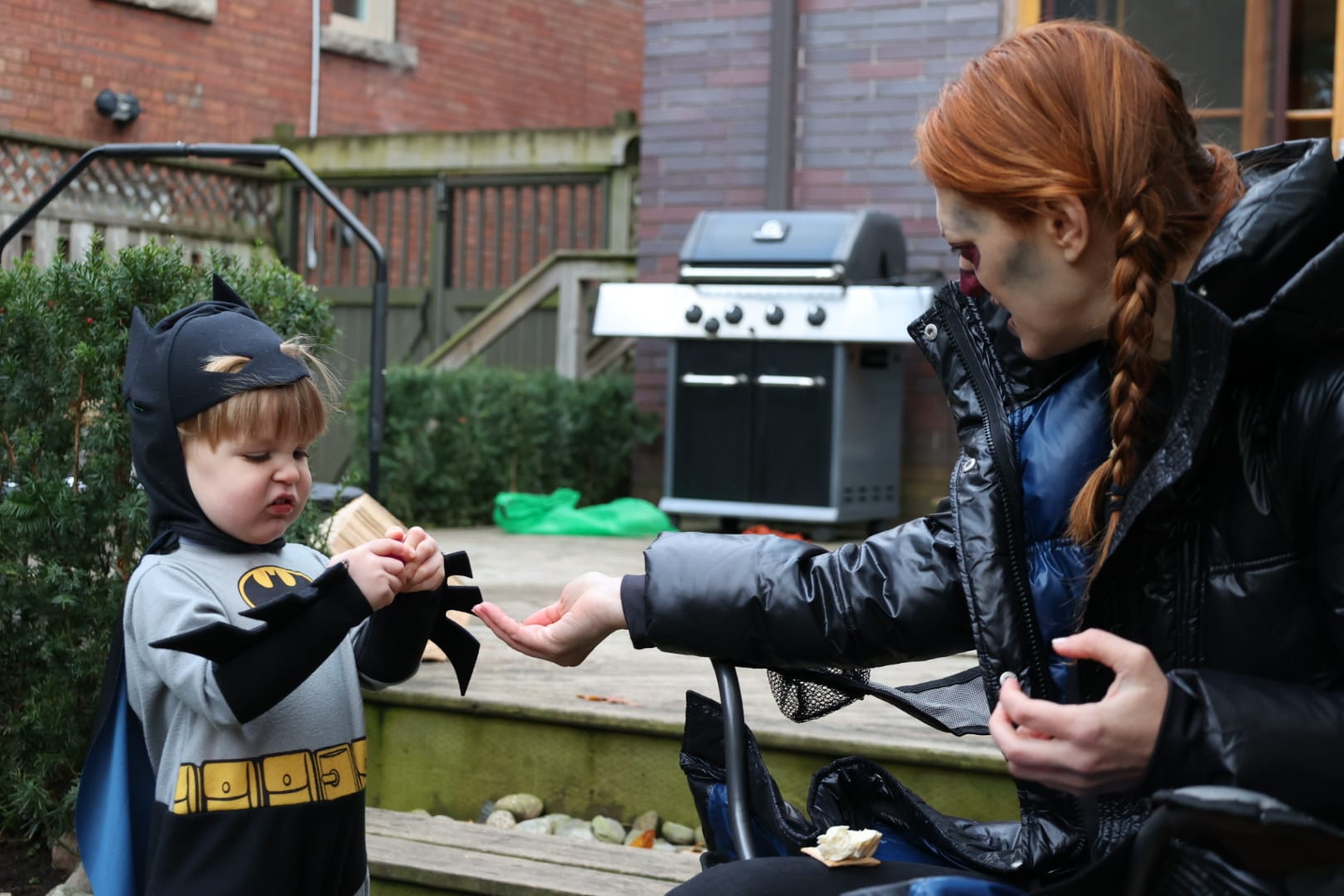
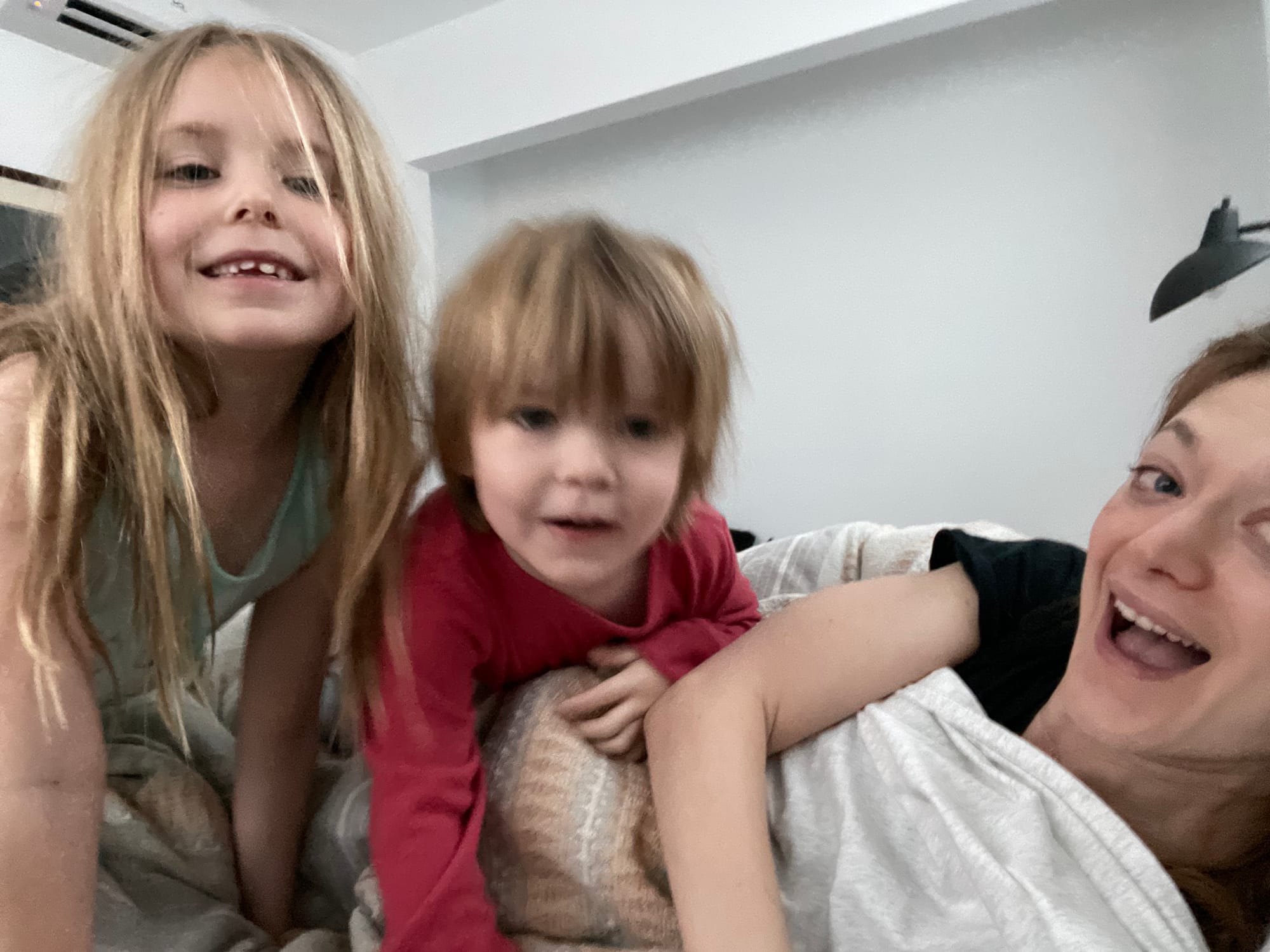
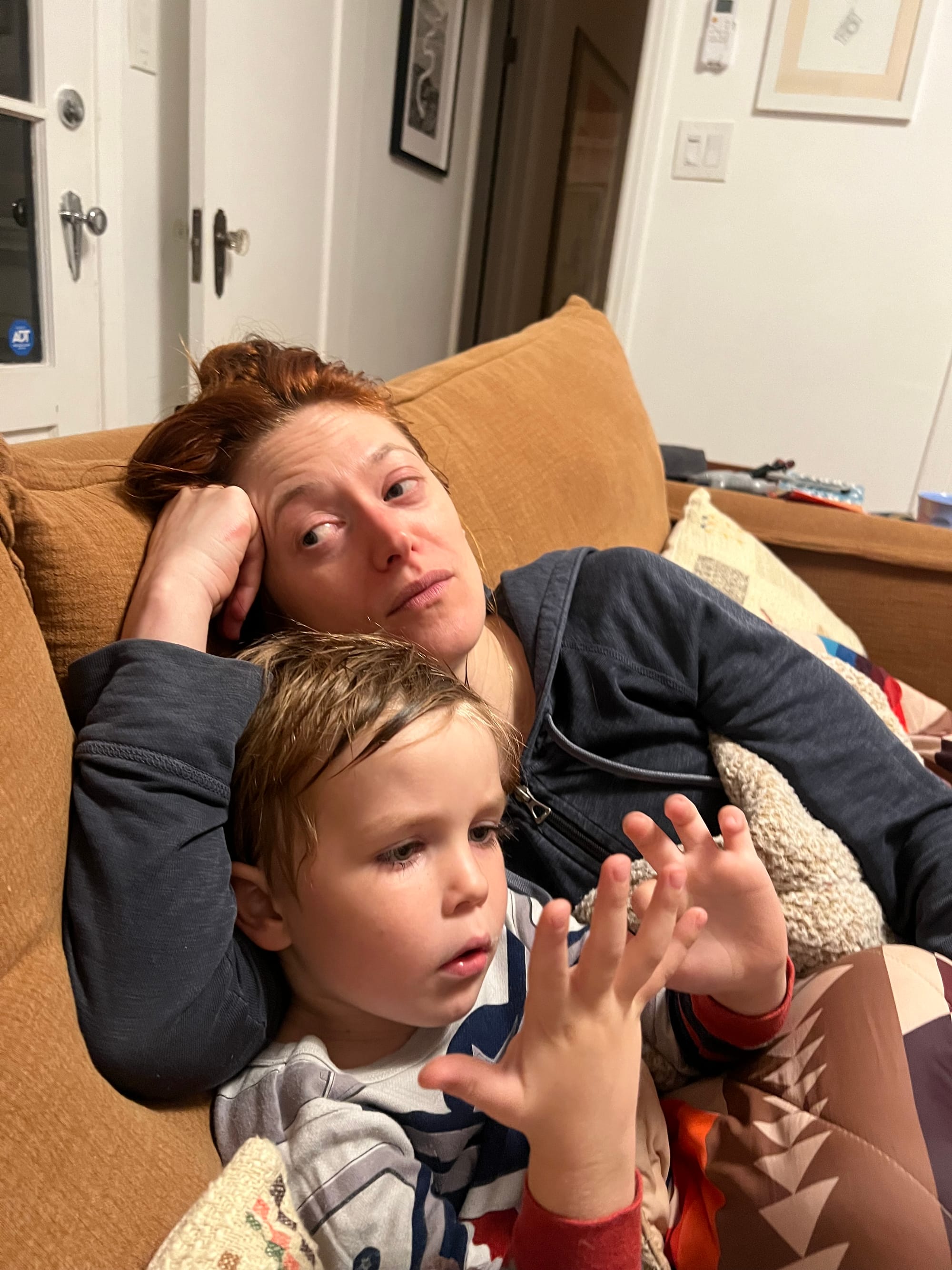
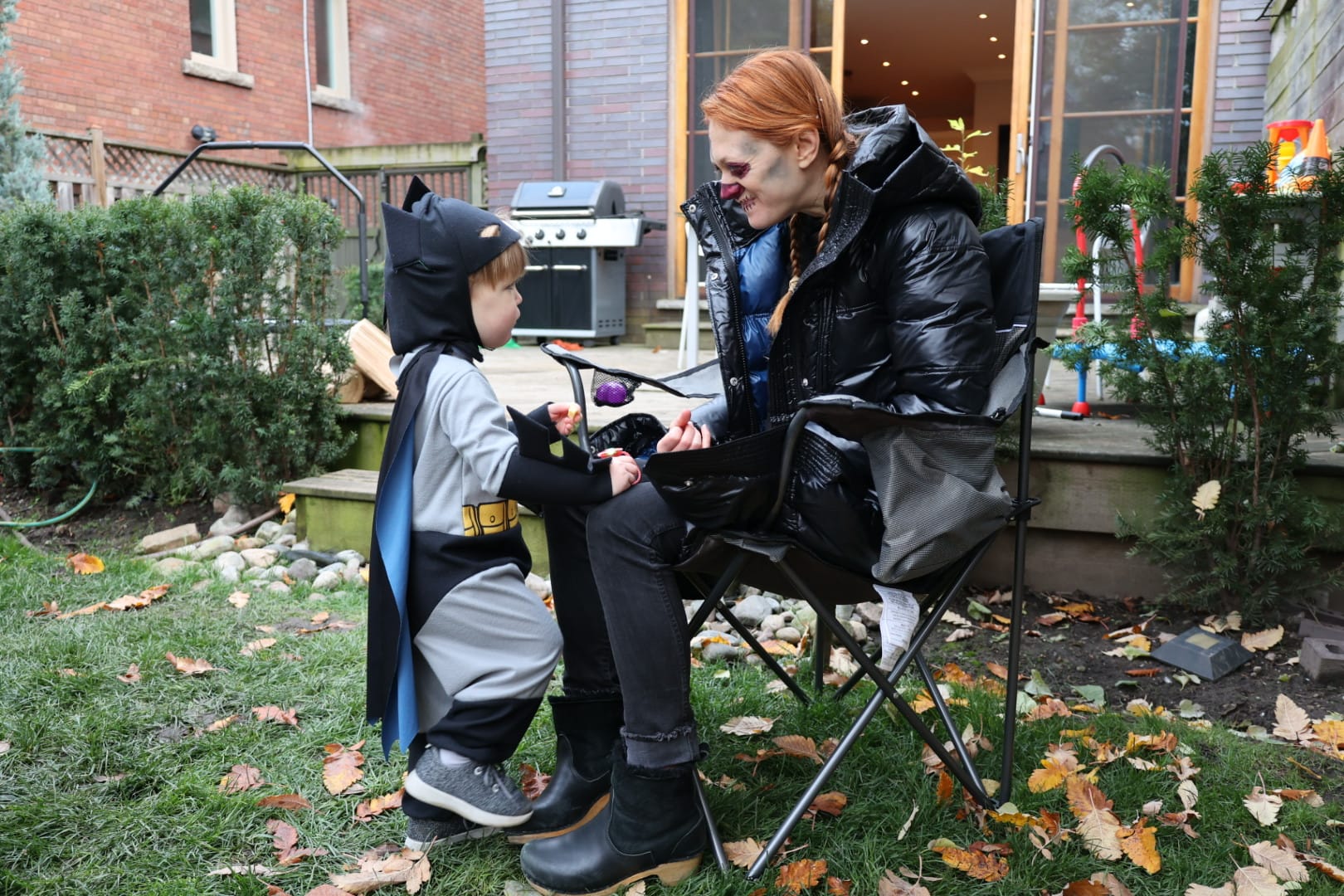
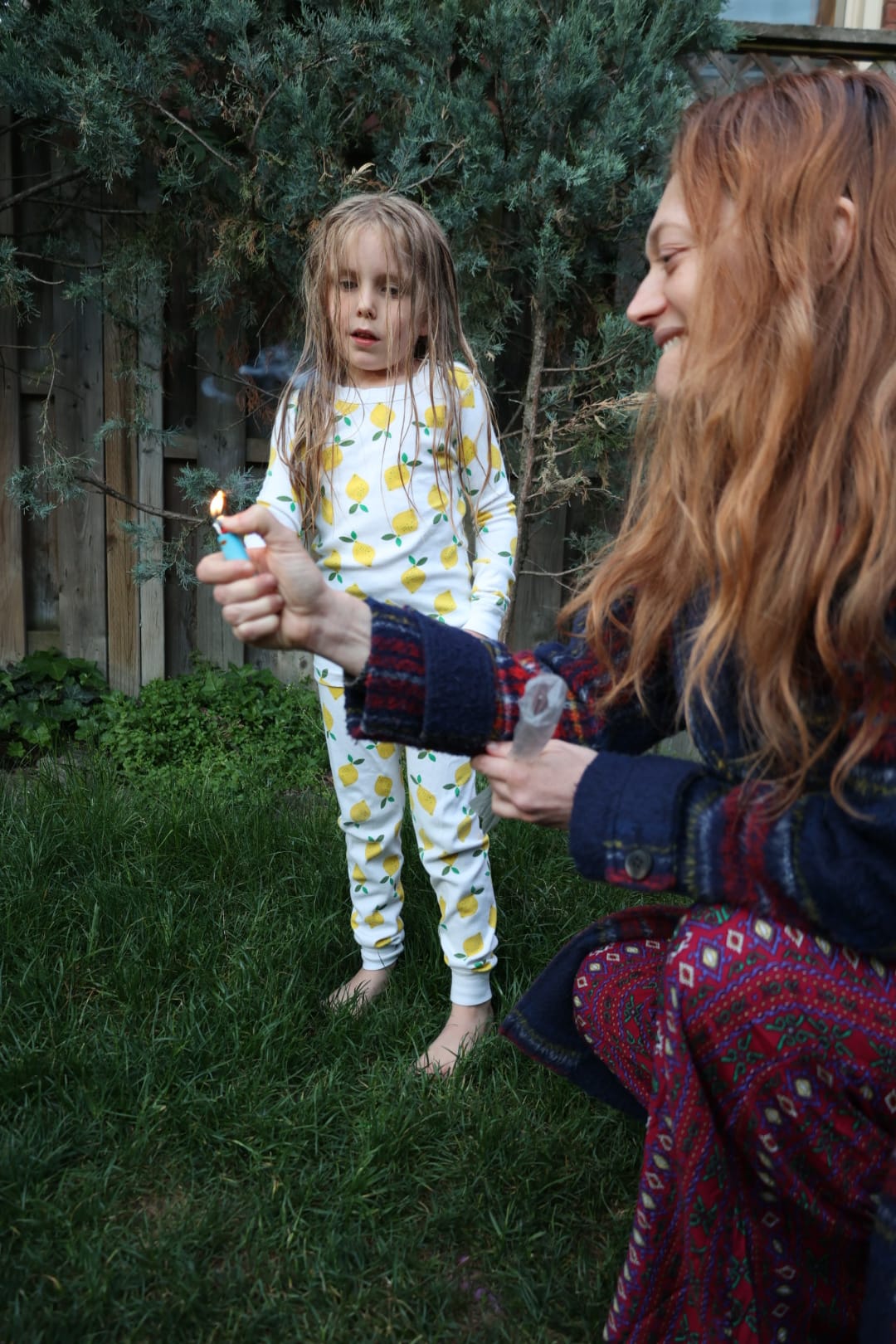
Marin with my children.
Enjoy this conversation with Marin about her process, and PLEASE MAKE SURE YOU VOTE!
How would you describe yourself? Do you use the word “artist”? Do you use another word?
I do not describe myself as an artist! I feel really warm and nice inside when someone else refers to me that way though. I think I feel like it’s like getting a knighthood or an OBE, that title must be bestowed upon one by a third party.
Although I think it’s perfectly lovely when someone else calls themselves one! I contain multitudes. (And have low self-esteem! I am working on it!)
How do you know when it’s time to move out of the envisioning/brainstorming/inspiration gathering process and get to work?
Well as an actor I have a line-learning rule if I’m doing a play, I have to be off-book when I start. And ideally I start learning a month out, 2 weeks minimum.
For acting, the brainstorming never stops. I start doing the boring line-learning because it starts kicking up a million dramaturgical questions, which then my subconscious starts fixating on, BUT. I wrote a play over the last 12 years or so that was finally produced, and my experience writing that was very particular. I would gather friends to read it for me (privately), realize it was horrible and I should never write anything, even an email, ever again, and then about 4-6 months later suddenly write like one huge swath all in one sitting.
At this moment, I don’t know if I’ll write another play ever, but I’m curious if the next one would be different.
Are you a planner/outliner? Is your process more intuitive? How did you discover a process that worked for you? And have you ever worked differently?
With that one play, I started intuitively, but almost immediately started ruminating on the form it should take, the greater skeleton.
I always had it in my mind as I was working. I had outlines written down, but not to the level of detail that I imagine “real” writers have. The thing of needing to hear it to be able to jumpstart the next draft was accidental/intuitive. I liked that though, so that might stick.
As an actor, my process is 90% intuitive, and the rest is planning and math problems and research. When I was a baby actor, I worked way harder on the paperwork type stuff, the research, the notes, but as I got older I liked surprising myself more.
If you’re working on a piece of art/writing, and you suddenly get a new idea, how do you deal with that interruption? And how do you determine whether that new idea belongs in this piece or a different one? If you’ve mapped out how something is supposed to be, do you ever divert from the plan?
For me I would just open a new document and write that thing out, and deal with it later. And then ask people I trust what they think. And then see what visceral reaction their answer gives me. And sometimes I’d try to look at I from the inside, like if I was acting in it, would I want to say/do that? Would it make sense to me?
Can you describe the worst part of your creative process? Which step do you enjoy the least?
Sharing it! Barf. For the first time at least, a new line, or the first run through in the rehearsal room as an actor. You’re just too vulnerable and suddenly looking at it with outside eyes, and it all seems wrong.
What is your favorite part of the creative process and why?
Oh I love a rehearsal room. It’s my favorite place to be. I’d happily sit in on any rehearsal room of anything.
And I love the freedom and the shared silliness and the expectation of mistakes, and that the goal is making mistakes actually. The goal is surprise. And play. It’s beautiful. It’s my favorite feeling. It feels healing. Like it reframes life—the idea of a mistake being an opportunity is genuine and tangible. Sometimes on set as an actor when the showrunner/director is really special, they can create that feeling. It’s rare. But it’s heaven.
How active is your inner critic in your process? How do you deal with your inner critic? Does he/she ever have anything helpful to say? Do you have any tips for how to silence them?
That asshole is there all the effing time.
Even on delightful rehearsal room days, I’ll walk out being like “oh god why did I do that”…I think as an actor, it has helped me to try that Buddhist thing of inviting the uncomfortable feelings in to sit with you, for tea. Like rather than try to shut them up or banish them, to just let the thoughts come through. And then see if the character can use that. Is there any chance the character (also a human probably) feels like an idiot or whatever in any way in this moment?
The hard stuff is the middle of the night. In that case I try my best to remind myself that this voice is untrustworthy, and try to read a book or distract myself. No social media! That feeds the monster.
As a writer, I think I embraced that thing of okay, then write the bad version. Every time I’d be like, this sucks, I’d say to myself, fine then this is the sucky draft. Just keep writing, you sucky loser. And then I’d look at it, and say it loud, and treat it like I was an actor who was handed something I didn’t love. And be like, is there a change I would suggest here? What’s actually “wrong” with this?
Tell me a story of creative conflict, either internally or in a collaboration. How did you work through the conflict? Is creative friction or conflict something that you seek out in a creative process, or try to avoid?
In my play, there was a scene about two-thirds in, and our genius lighting designer Isabella Byrd turned to me after a tech run and said, that one scene? I think you should just end it after the fifth line. Just “[line]” and then cut the rest.
I was like “OKAY GREAT!” with a crazy smile. My heart was pounding.
I knew the scene wasn’t holding, but one of the actors didn’t know their lines, and I was still waiting for that to magically gel before making any big changes.
Then I realized when I got home that now was the time. I couldn’t wait for that to happen.
I started to look at the scene, and I was like, Isabella has two Tony nominations THIS YEAR, just do what she says. Then my dear dear friend David Adjmi who won every award for Stereophonic this year and let me do Marie Antoinette with him for 7 years, called to check in on me. I told him what I was about to do, and he was like WHAT. NO. STOP. There’s no dramaturgy in that! What does your main character need to hear in that scene? That’s what you keep. Carve that out.
Which is, of course, obvious. But I was exhausted and vulnerable and embarrassed and I loved that someone else had basically done the cut for me already! So then I carved it out and I thought it worked and everyone liked it better.
How do you deal with burnout?
I basically want to quit every day. I feel like a Tennessee Williams character, like I stick around for the promise of something transcendent, but the hard shit makes me want to lie down all day every day.
I think the idea of burnout is something I only understand for myself as suddenly not wanting to say yes to every single thing. And of feeling depressed by my own work.
I don’t know how to deal with it. Other than saying no to things. Laying down a lot. Hydrating. Knowing that any kind of burnout or block is a season, like winter, and that spring is there under the ice and snow, and it’ll come out when it’s time. (Andre Gregory told me that)
What is your spiritual/psychological relationship to your work?
I used to believe in theater as my church. The sacredness of that space was real for me. Sharing breath with strangers, who all came seeking transcendence.
I’m not sure anymore. I do feel like it’s given me access to feelings that are bigger and older than I am. Something ancient.
And I know that when roles have come my way, they usually feel like they have something to teach me. And that my relationship to my work as an actor is intuitive and when it’s really humming, channeling something. When I doubt the meaning of the art form, I remind myself of the element of service. That’s why I do it. Serving the writer and also giving of my hours and my physical self for the audience to see themselves, going through something so they don’t have to, something like that.
Do you enjoy collaboration or are you more of a solo artist? Is there a story you could tell me about how you came to understand this about yourself?
As a writer, I have tried to work on things with other writers, and I think I function best that way when they write, and I dramaturg, or do what an actor does. Ask questions, throw out responses and ideas.
As an actor, I did a one person play, and I was so lonely I wanted to quit every day.
What is your ideal creative environment?
A mix of genders and ages and stuff. Windows. Snacks.
A director who is playful and open, and listens. Treats everyone like an equal. And can partner everyone in the most effective way for each person, or at least is committed to discovering what that might be. Somehow no sense of performance energy in the room. It’s mysterious.
Can you tell me a story of a time that you got to say “I told you so” creatively? Where you stuck to your guns and turned out to be right?
There was a transition between scenes in a play called Kill Floor, and I knew in my bones how long it needed to be. The brilliant director, Lila Neugebauer, wanted to try this other thing in tech. I was like….no. That’s not gonna work. And she kept saying well, it needs to be longer and more involved and we need to tell the audience we’re going somewhere else. And I was a real pain about it. I kept being like NO. it doesn’t want to be that. In fairness, the designers needed their process too! But I was like, I actually don’t know how to start that next scene if I have that long to recover. And so I think the audience shouldn’t have that long either. I think they should be on my ride. I was right. I think! At least we ended up doing my timing after everyone tried everything else. Who knows. But I was a pain in the butt.
Have you ever stuck to your guns and turned out to be wrong? How did you handle that?
I feel like this has happened A LOT. But I feel like as an actor at least I can just be like whoops! That was a terrible idea. I was wrong! And then hopefully you get to do it again.
What is the bravest thing you’ve ever done creatively?
Listen, this question made me think of when Dame Maggie Smith was asked something like “do you still get nervous on first days?” And she said something like “EVERY day is scary. EVERY. DAY. IS. SCARY.” So I feel brave every day I show up. I try to give myself that.
But in more concrete terms? Singing on stage (not in a musical). I find that scarier than taking my clothes off (which I have also done! And is also brave!) Doing the one person play.
And putting my play on, which was terrifying every second. And exhilarating! And terrifying.
Have you ever had a burst of inspiration where your creative process has felt like channeling? Where something artistic feels like it is pouring out of you, quicker than you can even process it? Do you have any idea how or why that happened?
I think that’s what I’d identify as the spiritual element. Yes. I’ve had that as an actor a lot. With Blasted, the Sarah Kane play, and with Marie Antoinette in particular—those were times when I just opened my mouth and something happened. I had no idea what was happening.
I think it’s magic. I think it’s alchemy. I don’t know.
What is your relationship to deadlines? Do you love them? Hate them? Why?
I try to give them to myself. Because I was a nerdy student and if I had a thing due, I’d be sure to have it done days before it was due. I couldn’t breathe properly until it was done. So I treat myself like my own middle school teacher (student? Whatever).
What is the best piece of creative advice you’ve ever gotten?
When I was doing the one person play, I reached out to this incredible writer/performer Martin Moran and asked him how do I handle seeing people sleep or critics or any of it. And here’s most of the email he wrote me back. I printed it out and pasted it on my dressing room mirror. And I’ve shared it with many people. Not just solo performers!
Here is one of the main things that solo performing taught me...
like a crucible standing out there:
I felt such ego related terror and dread..so much so,
that it, I, cracked through to the self of NO self.
There came a time when understanding that it
wasn't me. It was the human questions. It wasn't me,
it was just being present as vessel for the story.
And that the ones sleeping, bless them, the ones walking out,
bless them, the one's scribbling... none of it, was my business.
My only business was to stand and breathe and remain available
for what is crying to come through. To offer that up and out.
What is the best piece of creative advice you’ve given?
Thats just your ego flaring up, let it burn off. Just be curious and watch it burn off.
Follow what feels most sparky. It will reveal itself.
Also the end of Franny and Zooey—I’ve given that book and said read the end. Keep it on your dressing room table. Do it for the person you don’t know is watching, that you may never know is watching, Seymour’s fat lady in the back. (Spoiler alert: it’s Jesus Christ himself.) Come to think of it, that’s my spirituality. The end of Franny and Zooey.
Have you ever had a creative failure? What did you learn from it?
Oh lord. I feel like I’d like to think that’s an oxymoron because creative endeavors are subjective and failure makes it sound objective.
BUT! When I was younger, the first time I played the TITular role in a play, I was DESTROYED in The NY Times. And I READ it. (I was told the review wasn’t going to be in the paper!)
I was flattened. I thought I couldn’t go on. I reached out to everyone I knew who had been doing it longer than me, writers, directors, everyone. And they all said, if you do this long enough, it comes for everyone. It’s part of the whole thing. You need to know what you’re risking. What’s at stake. When you agree to do something and put yourself out there. Everyone has to walk through the fire. And if they haven’t, give it time. They will.
And that made me feel like, okay, it’s a rite of passage, not the sign from the universe I should quit. It’s a badge. You’re part of the community in a real way. You’ve bled for it and showed up the next day anyway.
And with that show in particular, the audiences actually grew and I realized yes it’s nicer to get nice reviews, for sure, but also it’s really none of our business as the ones out there every night.
And many many people don’t care. So I stopped reading any reviews of anything. Starting then. Because I thought well, why am I reading them?? To see what those people thought?? I don’t agree with them! And even when they like a thing I often disagree with the specifics. So that was a turning point for me. Everything I said yes to after that, I would also have to ask myself, if this gets terrible reviews and no one comes, will you still be proud to go out there and tell this story every night?
Also there’s a book I was told about called No Turn Unstoned where Diana Rigg aggregated all these horrible reviews of the best actors and writers and its terrific.
What can I plug for you in my newsletter? Your social media, a website, a new project, a book, a newsletter, etc?
Hmmm. I have some shows coming out next year. But who knows when! Watch Eileen and birth/rebirth. I love those movies. If and when my play comes back around, go see it.
